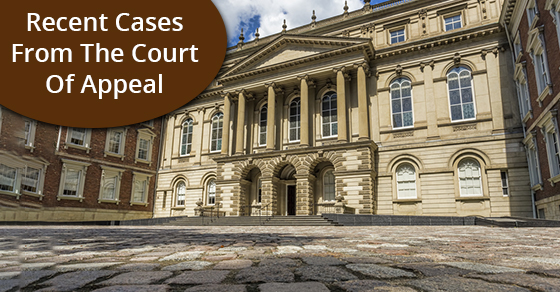RECENT CASES FROM THE COURT OF APPEAL (January 2018)

This blog is an ongoing feature that touches briefly on cases decided by Ontario’s highest court.
Failure to Call Witnesses: in The Queen v. DeGraw, the Court ordered a new trial because the trial judge made improper comments about the failure to call witnesses. A defendant in a criminal case is not required to prove his innocence: it is up to the Crown to prove guilt. But in some cases, if the Crown’s case is proven and is not contradicted or challenged by defence evidence, the court might have no choice but to convict. The judge has to be careful, however, in commenting on the lack of defence witnesses. It is a very tricky exercise.
Jail for Police Officer: In The Queen v. Hansen, the Court upheld a five year penitentiary sentence for a police officer who persuaded an informant to frame someone by planting a gun in his home, then lied about it. The Court emphasized that police officers have to be held to a high standard when it comes to upholding the public trust and the values of the justice system.
Right to Privacy vs. Police Investigation: In The Queen v. Lee, the Court addressed a controversial scenario. During a robbery investigation, police entered into a residential backyard without the permission of the owner. They started to question the people in the backyard, and one of them, Mr. Le, ran away. Police caught and searched him, finding a gun and drugs. The issue is whether the police search of Le’s bag was illegal, given that the police did not have the legal right to enter the backyard. The majority of the Court said that Le could not refer to the trespass to argue that his Charter rights were violated, because it was not Le’s backyard (the legal expression is that Le lacked “standing” to argue the trespass). A dissenting judge disagreed, saying that the police misconduct must be addressed by the court, even if the backyard did not belong to Le. Expect this case to head to the Supreme Court.

